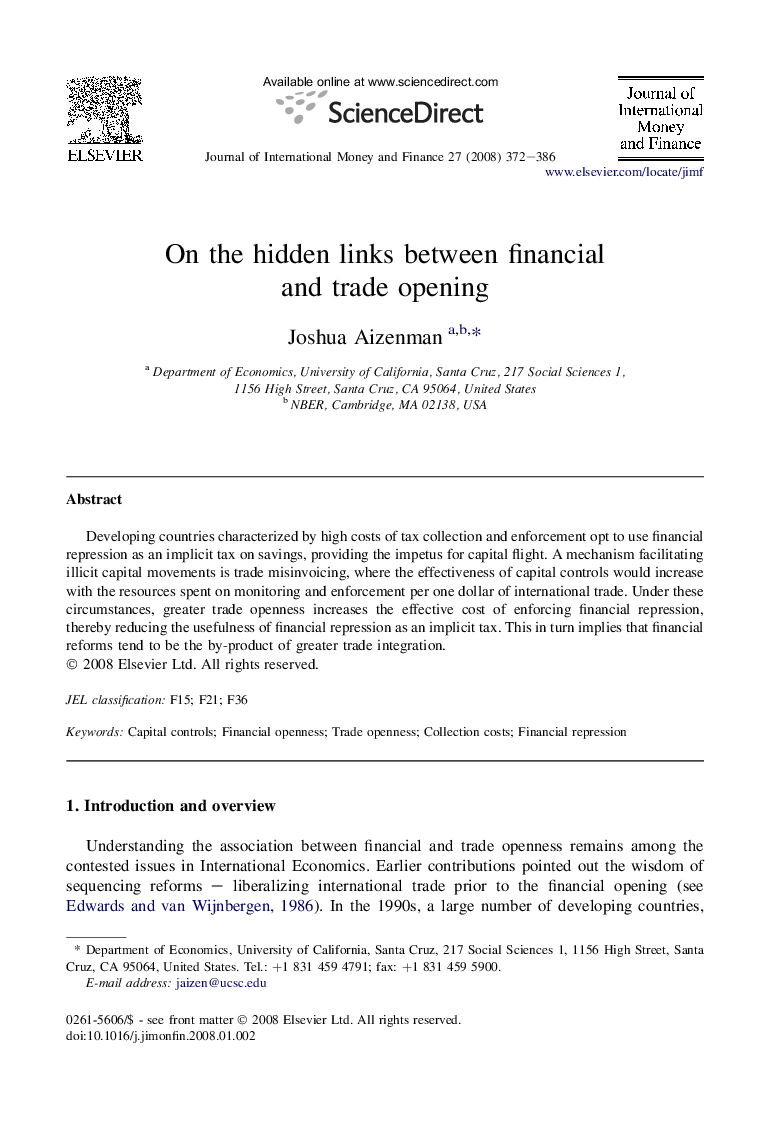| Article ID | Journal | Published Year | Pages | File Type |
|---|---|---|---|---|
| 964735 | Journal of International Money and Finance | 2008 | 15 Pages |
Abstract
Developing countries characterized by high costs of tax collection and enforcement opt to use financial repression as an implicit tax on savings, providing the impetus for capital flight. A mechanism facilitating illicit capital movements is trade misinvoicing, where the effectiveness of capital controls would increase with the resources spent on monitoring and enforcement per one dollar of international trade. Under these circumstances, greater trade openness increases the effective cost of enforcing financial repression, thereby reducing the usefulness of financial repression as an implicit tax. This in turn implies that financial reforms tend to be the by-product of greater trade integration.
Related Topics
Social Sciences and Humanities
Economics, Econometrics and Finance
Economics and Econometrics
Authors
Joshua Aizenman,
